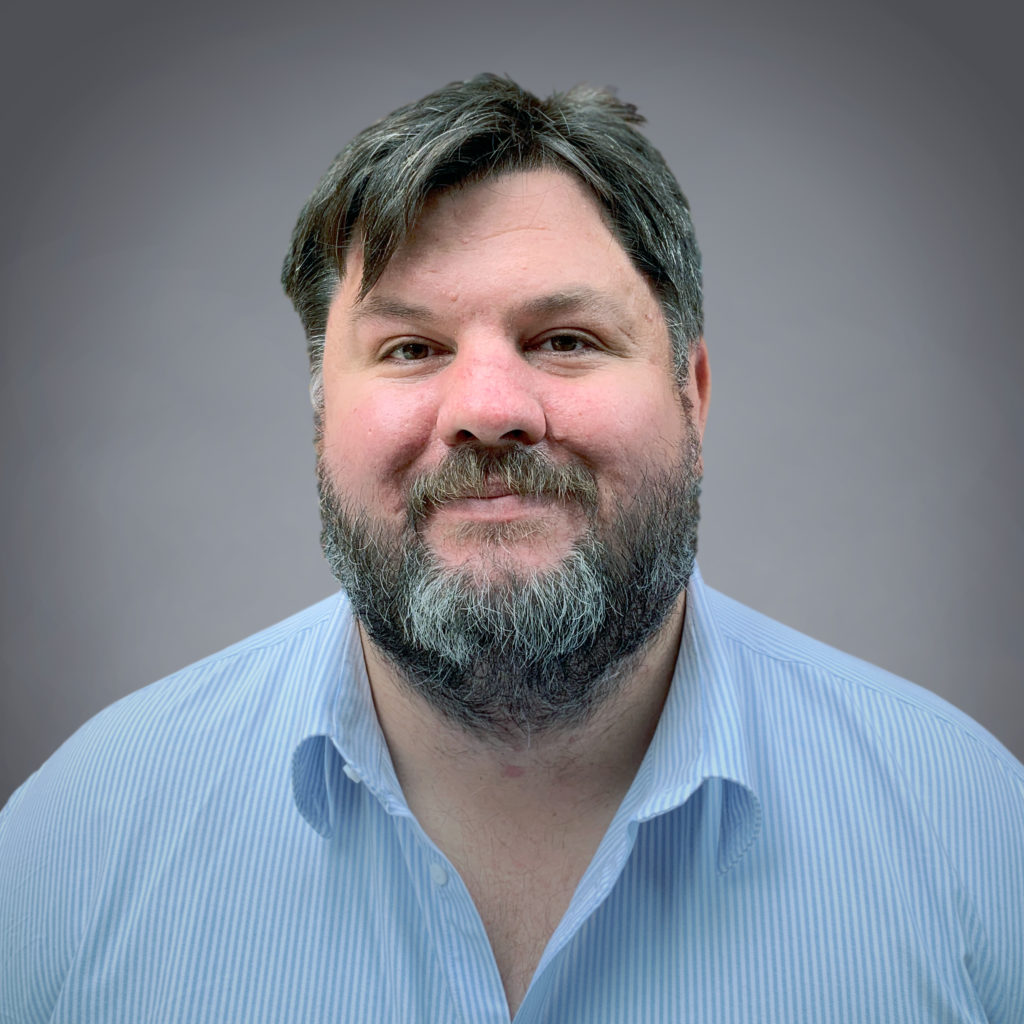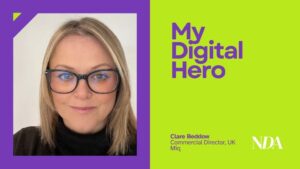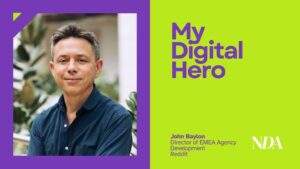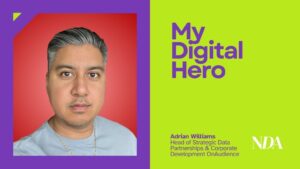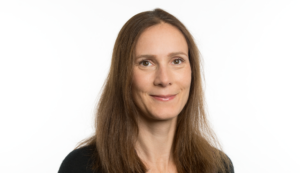Rob Webster is Founder of Canton Marketing Solutions. He’s worked in the adtech industry since 2001. Before setting up Canton, positions included running data and technology at Mediacom, sitting on the board, and was Chief Strategy Officer at Crimtan.
In a first for My Digital Hero, Rob picks his mother, with a very good rationale.
Who is your digital hero?
I am going to make this a more personal one and pick out two people who pushed me on in my digital life and career as well as influencing scores of others. Hopefully not too corny.
Those two are my mother Celia Webster and our chairman at Canton, James Briscoe. My mother worked in IT at BP and later lectured on IT at Cornwall College. James has had over 20 years working at digital marketing, I worked for him when he was MD of Unique Digital and then CMO of Syzygy.
What have they done to win hero status in your eyes?
Starting with my mother. Both my parents worked in IT and met when they both worked in the IT department at BP. My mother actually would be a very good template for a modern data scientist being both able to code and strong with maths.
She helped write the algorithm that found out where the oil was in the North Sea among other projects. Handling big mainframes, minicomputers, and later when they became available, personal computers in the 70s and 80s for a variety of business needs. She was a specialist in low level coding, a type of programming where all the helpful structures are removed, and you need to work on first principles.
The way that computers can make life better and solve complex problems is something we have discussed for as long as I can remember. Equally, understanding logical flows and how to break a problem down into its component parts (chunking up the elephant as I now often say). By the age of 6 under her guidance I had written a database on my favourite cars in a system called dataEase and was later using SQL to do GCSE maths coursework.
After working at BP she became a lecturer and helped hundreds of students learn IT skills and share her passion for maths and IT.
James Briscoe had an upbringing and training in science. It is only by chance and to marketing’s gain and science’s loss that he became a planner in the early stages of online. As his career progressed that core background of science training and skills and viewing the media world through the lens of a planner has maintained.
On a personal level James taught me the media value of my data and technology skills. The best technology or algorithm in the world is useless unless it solves a media problem and can be explained to a media audience. James though has helped many more people than just me. Throughout his career he has built media teams built on a great culture which learnt at all times to focus on the marketing value.
Measurement was always at the heart of the solution, a forensic approach to problem solving James took from his science background and an understanding of the fundamentals of media and marketing. All these skills would be passed on to the people who James always showed a huge amount of faith and trust in. For me James is the go-to person in the industry when you want to talk about how planning has evolved and how it should now work in a programmatic or omnichannel world.
What is the biggest challenges in digital we need another hero to solve?
Without a doubt it is being able to accurately measure digital and by extension media attribution. For all the talk of machine learning and AI, most brands’ measurement frameworks are not fit for purpose.
Feed bad data into an AI buying system and you will get a bad result every time. There is a massive over reliance on simple web analytics data to measure media success.
Web analytics is a powerful tool but its ability to measure media impact is severely limited. Walled gardens and particularly Google and Facebook locking down their measurement systems in black boxes for their own media has made matters worse.
What is your most heroic personal achievement so far in digital?
I hope that as someone who has had a privileged career I have sent the elevator back down to the next generation. I have been fortunate enough to have hired over 100 graduates and school leavers in my career and it’s great to see how well they are all doing.
I hope I have been able to pass on what I have myself learnt around the use of data and technology in media and perhaps been a part of improving practices across the industry.


